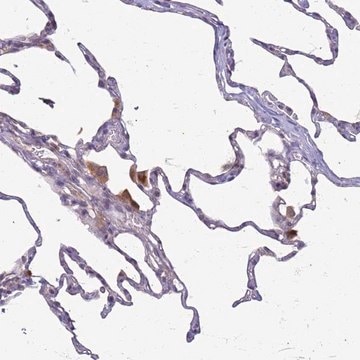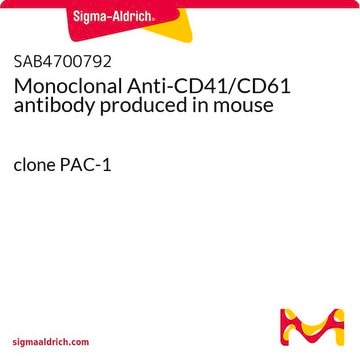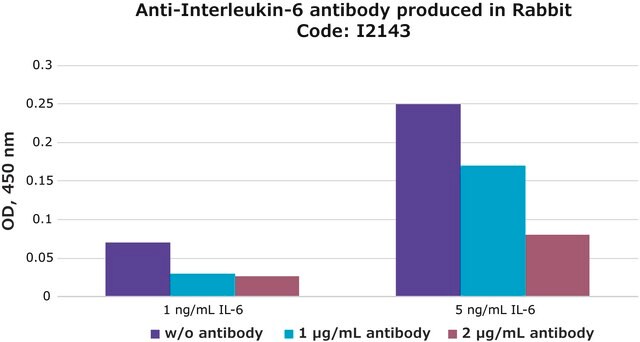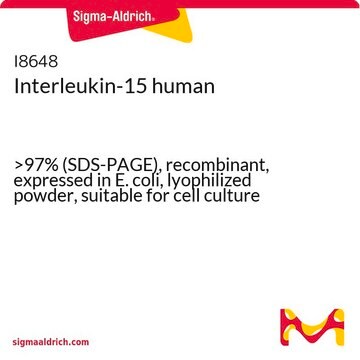おすすめの製品
詳細
Millipore’s Ready-to-Assay GPCR frozen cells are designed for simple, rapid calcium assays with no requirement for intensive cell culturing. Millipore has optimized the freezing conditions to provide cells with high viability and functionality post-thaw. The user simply thaws the cells and resuspends them in media, dispenses cell suspension into assay plates and, following over night recovery, assays for calcium response.
Ghrelin is a 28 amino acid peptide, containing a unique octanoyl moiety added post-translationally to Ser3, with diverse activities in the CNS, gastrointestinal tract, and cardiovascular system (Davenport et al., 2005; Leite-Moreira and Soares, 2007). In the CNS, ghrelin stimulates release of growth hormone from the anterior pituitary and increases appetite by binding to neurons within the arcuate nucleus. Circulating concentrations of ghrelin increase with preprandially and decrease post-prandially, and thus counterbalances the effects of leptin to coordinate energy balance, appetite and food intake. Ghrelin is also expressed in the cardiovascular system where it acts as a potent vasodilator; receptors are up-regulated in patients with atherosclerosis, suggesting that it plays a role in compensating for increased vasoconstriction (Kleinz et al., 2006). The effects of ghrelin are mediated by a Gq-coupled receptor, originally designated GHSR (growth hormone secretogogue receptor), and more recently termed the Ghrelin Receptor or GRLN. Two splice variants have been described; type 1a (GHS-R1a) is the functional receptor, whereas type 1b (GHS-R1b) encodes a truncated, inactive protein with only 5 transmembrane domains. As administration of agonists of the ghrelin receptor to rats leads to increased food intake and antagonists reduce food intake (Beck et al. 2004), antagonism and inverse agonism of the ghrelin receptor may reduce food intake in certain types of obesity, and agonists of the ghrelin receptor are potentially useful for treatment of anorexia and cachexia. Millipore’s cloned human ghrelin-expressing cell line is made in the Chem-1 host, which supports high levels of recombinant ghrelin expression on the cell surface for functional detection via the calcium signaling pathway. Thus, the cell line is an ideal tool for screening for agonists, antagonists and modulators at Ghrelin Receptor.
Ghrelin is a 28 amino acid peptide, containing a unique octanoyl moiety added post-translationally to Ser3, with diverse activities in the CNS, gastrointestinal tract, and cardiovascular system (Davenport et al., 2005; Leite-Moreira and Soares, 2007). In the CNS, ghrelin stimulates release of growth hormone from the anterior pituitary and increases appetite by binding to neurons within the arcuate nucleus. Circulating concentrations of ghrelin increase with preprandially and decrease post-prandially, and thus counterbalances the effects of leptin to coordinate energy balance, appetite and food intake. Ghrelin is also expressed in the cardiovascular system where it acts as a potent vasodilator; receptors are up-regulated in patients with atherosclerosis, suggesting that it plays a role in compensating for increased vasoconstriction (Kleinz et al., 2006). The effects of ghrelin are mediated by a Gq-coupled receptor, originally designated GHSR (growth hormone secretogogue receptor), and more recently termed the Ghrelin Receptor or GRLN. Two splice variants have been described; type 1a (GHS-R1a) is the functional receptor, whereas type 1b (GHS-R1b) encodes a truncated, inactive protein with only 5 transmembrane domains. As administration of agonists of the ghrelin receptor to rats leads to increased food intake and antagonists reduce food intake (Beck et al. 2004), antagonism and inverse agonism of the ghrelin receptor may reduce food intake in certain types of obesity, and agonists of the ghrelin receptor are potentially useful for treatment of anorexia and cachexia. Millipore’s cloned human ghrelin-expressing cell line is made in the Chem-1 host, which supports high levels of recombinant ghrelin expression on the cell surface for functional detection via the calcium signaling pathway. Thus, the cell line is an ideal tool for screening for agonists, antagonists and modulators at Ghrelin Receptor.
細胞株の説明
GPCR Cell Lines
Host cells: Chem-1
生物化学的/生理学的作用
GPCR Class: A
Protein Target: Ghrelin / GHSR-1a / growth hormone secretagogue receptor
Target Sub-Family: Ghrelin
構成
Pack contains 2 vials of mycoplasma-free cells, 1 ml per vial.
Fifty (50) mL of Media Component.
Fifty (50) mL of Media Component.
保管分類コード
10 - Combustible liquids
WGK
WGK 1
引火点(°F)
Not applicable
引火点(℃)
Not applicable
適用法令
試験研究用途を考慮した関連法令を主に挙げております。化学物質以外については、一部の情報のみ提供しています。 製品を安全かつ合法的に使用することは、使用者の義務です。最新情報により修正される場合があります。WEBの反映には時間を要することがあるため、適宜SDSをご参照ください。
労働安全衛生法名称等を表示すべき危険物及び有害物
名称等を表示すべき危険物及び有害物
労働安全衛生法名称等を通知すべき危険物及び有害物
名称等を通知すべき危険物及び有害物
Jan Code
HTS187RTA:
試験成績書(COA)
製品のロット番号・バッチ番号を入力して、試験成績書(COA) を検索できます。ロット番号・バッチ番号は、製品ラベルに「Lot」または「Batch」に続いて記載されています。
ライフサイエンス、有機合成、材料科学、クロマトグラフィー、分析など、あらゆる分野の研究に経験のあるメンバーがおります。.
製品に関するお問い合わせはこちら(テクニカルサービス)







